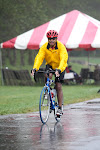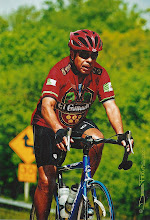While growing up at Grove, Kellington was where I most pestered my parents to let me go. Kellington was excitement, friends, games and fun… always fun. You see Kellington was where my grandfather lived. He had gotten married for a second time at the advance age of 65 and started a second family. The children from this marriage (my uncles and aunts) were close to my age and so getting the opportunity to go to Kellington was always an assurance that I would be having a day of excitement and fun.
Kellington was about 2 miles west of Grove but getting there meant negotiating your way across a huge cow pen. This was ok for grown-ups because they had shoes on but for a kid that runs around without shoes it was a mean task and one that at nights was definitely one of wet surprises. The cow pen was where they brought the cows in from the pastures for milking and feeding. It was done twice a day, morning and evening, and this particular cow pen sits smack dab in the middle of the way between Grove and Kellington. So to get to Kellington you go early in the morning after the first milking and returned late in the evening after the second milking, this gave you a whole day and this suited me just fine.
At Kellington lived my grandfather ‘Dadda’ (I will try to talk about Dadda later). He was the ‘Busha’ or ‘Head Man’ for Shaw Park Estate. This meant he rode a horse (Albert I think the name was) and he carried a rifle constantly as he patrolled the entire estate to see to its supervision. This job was prestigious and carried great influence in the surrounding community as he was responsible for the hiring and setting of wages for field hands associated with the planting and harvesting on the estate
I remember Kellington as a huge house (in my childhood eye’s of course) sitting on top of a hill overlooking the village of Parry Town. The most distinctive feature of the house was a concrete catch basin in the back which was like having indoor plumbing then. In the front was this huge tamarind tree and in the back were groves of mango trees. But to the south side was the best part, there was where you had the barbecue pits. These were not for cooking meats but more like large size raised concrete beds built for the drying of pimento seeds which was a big export crop for the estate. The seeds were picked green from the trees and carried here to be dried and bagged before selling (more on this later). So in the picking season you would have these huge beds of pimento seeds laying out in the sun to e dried. One of the fun job was getting them all back into storage if there was a sudden down pour of rain. Then you had to have all hands on deck, kids and all.
But if there was no pimento drying then we as kids had the barbecue area all to ourselves. Our favorite usages was for flying kites. The barbecue gave us great advantages; there were no trees to entangle your lines, the barbecue sits on the very top of the hill so that our kites were a little higher that the rest of the kids from Parry Town and the surrounding areas, and with the vast open space the barbecue provided you had space to maneuver you kite. This was important as the challenge of kite flying was not to just get your kite up into the air.
To us (or probably just me) kite flying was serious business. You wanted your kite to be the prettiest, the largest and can go the highest. Your kite had to be up all day and the challenge was to keep it up against all challenges of being forced down or ‘cut’. Flying was not just about keeping your kite dancing in the wind but there were huge kite battles in the air. You could have your kite forced down by another kite's line forcing your down or you are dragged down from being entangled with another kite or your line cut by actual razor blades tied into the tails of opposing kites. This was the cruelest loss as the cut kite is sent adrift into never land, a tough loss for a kid who probably spent his entire year's earnings on that kite.
Kite flying was one of my favorite sports while growing up in Grove. I was no good a building the kite, mush to my father's dismay as this was one of the more cherished manly skills, but I was good at pasting and tying to give you a balanced kite, which probably explain my future love for the precision of mathematics. I had to buy my kites which meant that I had to earn the money. I enjoyed flying them though, too much perhaps for as a child I developed an eye problem and had to start wearing dark glasses. But when my father went out and bought me a pair of pink frame sunglasses the problem surprisingly went a way very fast.
Besides kite flying Kellington offered cricket. There were always enough kids around to get a game going. A ball made out on anything or a fruit and bats make from a coconut bough was all the materials we needed and a game could go on for all day. And if that was not enough Kellington offered hoards of mango trees which was always free for the taking as long as you could reach it by climbing or knock it down with a stone. Thinking back now it is surprising but I cannot remember a broken bone or any one being hit by a rock and definitely no one ever lost an eye.
Kellington was my all time favorite play ground. Though I was at an early age, the bonding we made there are ties that have lasted and the memories are some of my most treasured ones of growing up in Grove.
Tuesday, August 21, 2007
Kellington - a fun place
Posted by
bonnonnonnos
at
4:01 PM
0
comments
![]()
Monday, August 6, 2007
Shaw Park Hotel
The road from Grove leads directly down to the rear of the hotel so this was my main view of it. The dairy where my father worked was the first building from this entrance . It was at the south west corner and about a mile or so from Grove. There were no cows there but the milk from the milk pens was brought here where it was bottled and they made cream and butter and I think ice cream also, The road then winds down through the hotel facilities. First you cross over a bridge and on the left was a Power House for generating electricity for the hotel (That must have been a rarity then). Next came the ice house on the left. It not only made ice but provided clod storage for meats and other provisions for the hotel. Across from it and on the right was the kitchen. There must have been a laundry area too but I cannot recall where it was situated. Once you got pass the kitchen you came to the rear of the main guest area. I recall it as being a two story structure, with white stucco on the outside. My research now tells me that it was the original Great House of a plantation. The guest house faced what is now the Botanical Garden area.
That area was even more beautiful then than it appears today. The main entrance road was lined with these towering palm trees that were surrounded by acres of meticulous manicured lawns. The palm trees were what you would first notice as you entered. The lawn area itself was on two levels. The top was expansive and heavily manicured. On the fringes of the lawn area closest to the hotel were numerous flowers that were always in bloom. On he other side of the garden, away from the hotel was the terraced side that was fenced in by Roth iron fencing. It overlooked the lower garden level, but most memorable was the view. From there one had the most spectacular view of Ocho Rios bay and its surroundings vicinities and a vast look of the expansive Caribbean Sea extending to the horizon.
Steps from this terraced level lead down to the second level. Where there was a pool and the rivers. The pool was made by damming the river so it was free flowing but was deep enough to allow diving as I remembered a diving board being attached. I remembered white wooden lounge chairs surrounding the pool.
While I was growing up the hotel added another wing, a modern brick and mortar structure that contrasted hugely from the other structures. That was a two story building just outside and to the south west side of what is now the Botanical Garden entrance.
The hotel had two Chevrolet station wagons. They were shiny dark green with an embossed wooden façade on the outside (I do not know they were made of wood then or just plastic as they are today). These vehicles were the life blood of the hotel as they were constantly going and coming.
I remembered the holidays at the hotels as especially exciting times. The food was sumptuous and plentiful then. I particularly remembered giant size turkey leg (it must have been America’s Thanksgiving celebration) that seemed half as big as I was then and Christmas and New Year brought more ice cream than you could eat and unusual other goodies.
But more important than the holidays were the people. Some names that I remembered were Mr. Wilmott, he managed the hotel infrastructure and its maintenance; Ms. Pottenger, she had clerical duties but was always particularly nice to me; Mr. Swarez, I think he was one of the drivers; then there was Claude and Mr. Brown and about four or five other milk men, these were the people I most interacted with. The hotel and the Estate were owned by either the Stuarts (Colonel Stuart’ father) or the Pringles. This I am not sure but these were the names of the people with power and influence over the hotel and my father’s (and grand father’s employment) for a lot of years.
While I never enjoyed the amenities of a guest the hotel it played a vital part in my life while growing up at Grove. Foremost, it provided a livelihood for my father and thus the means of existence for us. Secondly, it introduced me to another world and the things associated with that world. But mostly for me today I appreciated the people, the associations and protection that they gave me was a vital part in forming who I am today. I always felt loved at Grove. And it was not just the love of my mother and father or my dog, or because I was an only child, or because I was most times the only child among a bunch of grown-ups, it was more than that. It was a sense of protectiveness and the goodwill you feel from being recognized, liked and protected by everyone, from the lowly milk men to the hotel owners.
Growing up in Grove was a special time and the hotel provided a special nurturing, for even though I was alone most of the time I never felt really alone.
Posted by
bonnonnonnos
at
8:47 PM
1 comments
![]()

